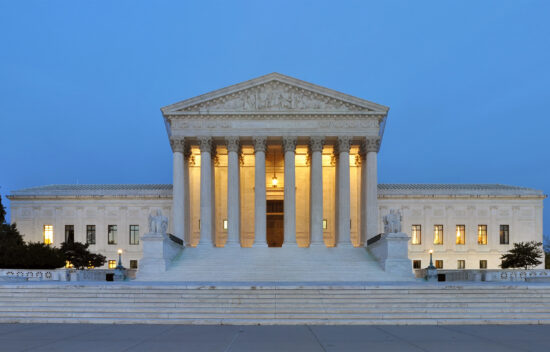 External Post
External PostShould State Legislatures Be Responsible for Drawing Political Districts?

The debate over gerrymandering, or the purposeful drawing of districts in order to gain a political advantage, has a long history in our country. The term can be traced all the way back to one of the country’s Founders, Elbridge Gerry, who was accused by opponents of manipulating district lines for the advantage of his party. Recently, the Supreme Court has taken up a case involving gerrymandering. Due to the continued controversy over how district lines are drawn, some Americans believe that state legislatures should no longer be responsible for drawing political districts.
Those who argue that state legislatures should be responsible for drawing political districts contend that the large majority of states have this system in place, and that changes should not be made to it. They say that this system allows constituents of the state to have a voice in how districts are shaped, as they elect members of the legislature. They claim allowing independent commissions who don’t have a direct tie to the people via elections prevents voters from holding them accountable. They may also argue that allowing the judicial branch to become involved would be a violation of separation of powers as they contend district lines is an inherently legislative question (since it is elected by the people) and not one for the judiciary. Finally, they may argue that the federal government should not be responsible for drawing political districts as doing so would violate the principle of federalism, which delegates specific powers to states in order to prevent a centralization of power with the national government.
Those who argue that state legislatures should not be responsible for drawing political districts may argue that a variety of other bodies would do a better job. They may argue that independent commissions should be given the power to do so, as they would prevent members of the legislature to redistrict in ways that would significantly weaken the power of minority voters. They may claim that allowing the judiciary to become significantly involved in the process would also help protect the rights of voters from a political majority diluting the power of a minority. Finally, they may contend that allowing the federal government to be involved in the process would ensure that fair and equal processes exist universally across the country.
So, what do you think? Should State Legislatures Be Responsible for Drawing Political Districts? Students can answer Yes, they should; No, they should not; or a nuanced answer in-between! Be sure to submit your responses by November 2nd to have it be considered for this week’s contest.
Note: Ideal Think the Vote responses include the following:
- Address the question asked in a thoughtful and meaningful manner
- Use cited facts and constitutional arguments when appropriate to support their answers
- Are expressed in cohesive sentences and are free of distracting spelling, punctuation, and grammatical errors
- They address counterarguments and opposing concerns in a respectful manner
- They organize their answer in a manner that flows logically and reads clearly
JOIN THE DEBATE BELOW FOR A CHANCE TO WIN A $1,000 CASH SCHOLARSHIP!
For this question, BRI will be giving away two $25 gift cards, one to each person providing the best defense of each side of the debate. Both students will also win BRI swag. Each student winner will also be entered for a chance to win a grand prize of a $1,000 cash scholarship. Additionally, the referring teachers for both students will each win a $25 gift card and BRI swag.
This question will run from 10/19/23 to 11/2/23, so be sure to submit your answers in time to be considered for our prizes!




